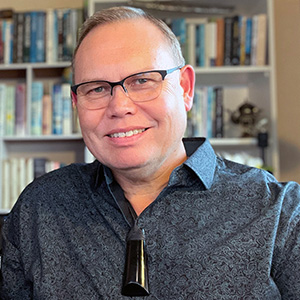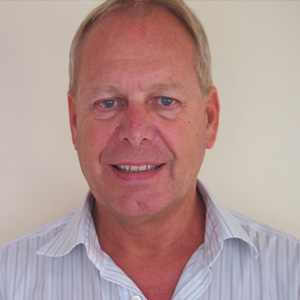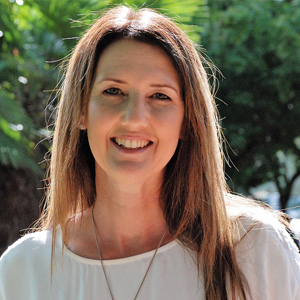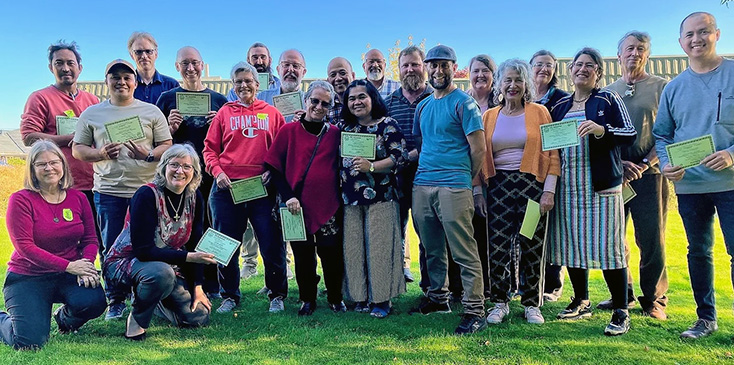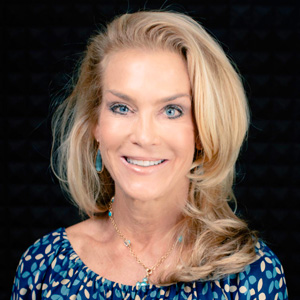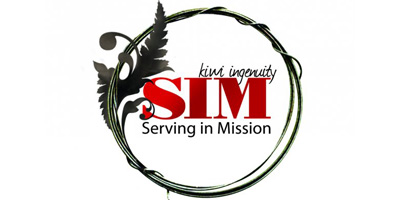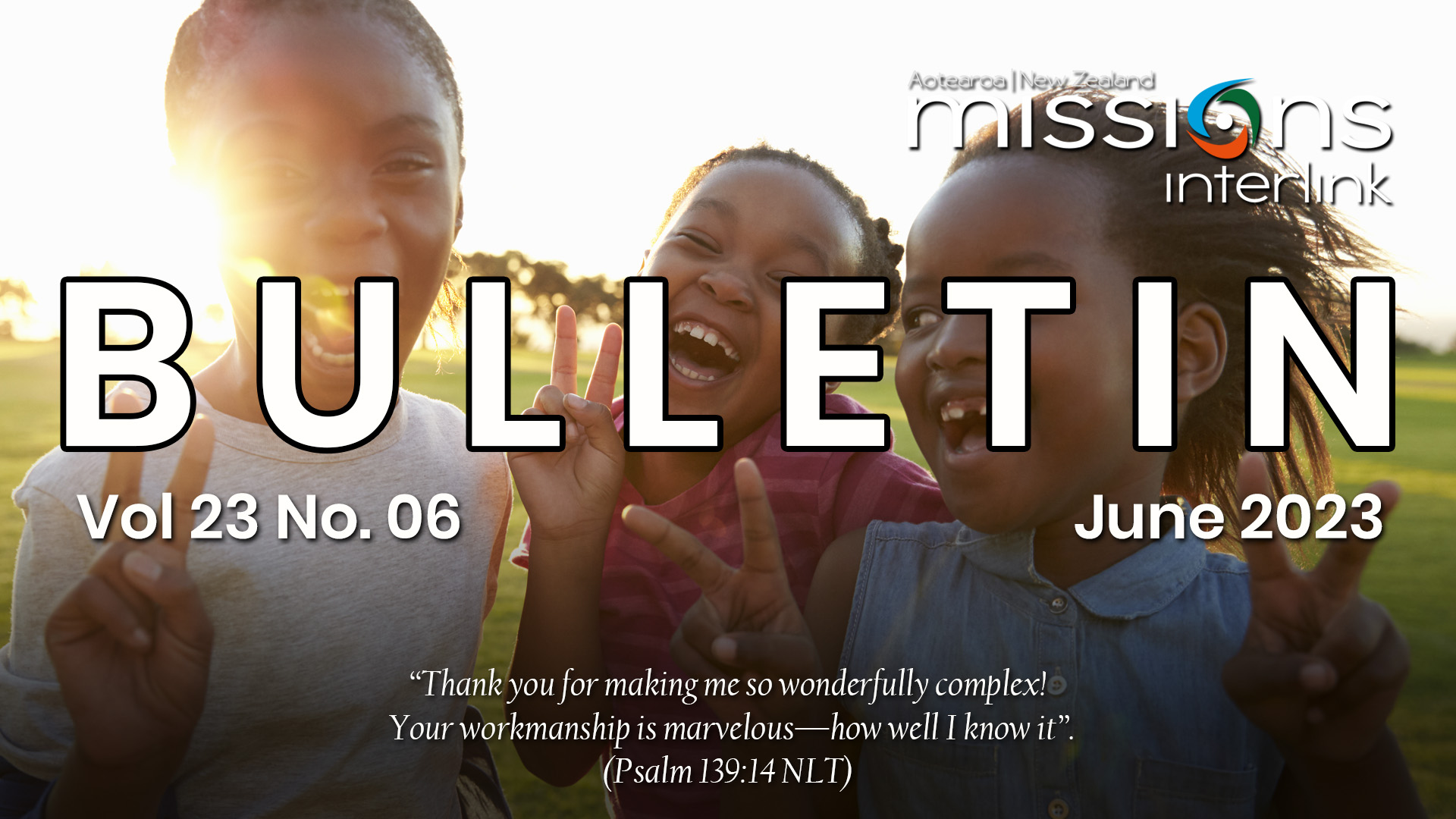
QUICK MENU
EDITORIAL
- The Wellbeing Imperative
EQUIP
- Holiness Factor
- God Led Change
GO
- Theology Around The Table
- Good News Global Family
- Listen Global
CARE
- Keys To Wellbeing
PRAY
- CWI, FEBC, ISV, MINZ, OMF, SIM, WEC, WBT
SPOTS
- Latest News & Events

EDITORIAL
THE WELLBEING IMPERATIVE
By Dr Jay Matenga
Jay is the Executive Officer of Missions Interlink, Director of Global Witness for the World Evangelical Alliance, and Executive Director of WEA’s Mission Commission. Jay writes and speaks on missions related subjects globally. His blogs, articles, and other public contributions are made available for free on jaymatenga.com
This month’s whakataukī (proverb) is, “He whiro rānei koe, he ahurangi rānei?” [“Are you an evil person, or one of good character?”]. Tohunga (Māori priests) used to ask this of initiates seeking to undergo purification rites. The answer from the young and confident was inevitably “I’m good!”. It is safe to assume the wise old elder looked on and thought, “nah!”. The cocky initiate had no clue what it meant to be ahurangi, a virtuous person; they had not yet been tested enough by life to warrant such confidence. We are all in the shaping, yet we must never forget that we come from healthy root-stock. God created a’dam (humans, ‘of the ground’, from which we derive our concept ‘indigenous’) in God’s image and declared us to be “good!”
My early Christian life and discipleship formation in my late teens, within a non-denominational back-country charismatic Christian fellowship, contained a good dose of unquestioned theology. This was further reinforced by teaching I was exposed to when I moved to a big city church and participated in the urban youth group movement. As a new believer I just accepted everything I was told, as you do. It has served me well as a foundation and I still embrace the essentials, but as I’ve grown and sat under different teachers, so I have found cause to re-evaluate some of that early discipling.
I was challenged on one element of unquestioned theology when I was 30 years old. Let’s just say I was ‘educated’ by Dr Christopher J. H. Wright when I disagreed with him in a tutorial session, seeking to defend a rather extreme understanding of the total depravity of human beings. I lost. But it wasn’t his Old Testament scholarly apologetic that helped me ‘see the light’, it was the genuine compassion in his instruction as he looked at me with deep concern and asked me to consider the implications of such a belief. I was well and truly schooled, and that encounter was so rupturing that it set me on a very different trajectory for my MA studies than the one I enrolled to do. My research was still focused on better understanding missions mobilisation, but I was to gradually shift from a pathological view of missions (focusing on a disease) to a wellbeing perspective. This continued to develop in my practice as a missions leader and on into my doctoral research.
One might think that the former (disease) is cause to which the latter (wellbeing) is the result of a right application of a healing remedy. But I have found that a pathological focus is ultimately unhelpful for missions. It tends to amplify what is wrong with a person, group or nation. It sets the missionary in the superior role of a clinician (a judgmental position) tasked with diagnosing and ‘fixing’ the identified problem. The remedy is usually via some formulaic methodology, resulting from a pragmatic solution found in one context and not necessarily well adapted to others. Pathological missiology too easily cherry picks scientific theory to try to right what is perceived to be wrong with the world (e.g. outdated or faddish anthropological, sociological, political, or psychological theories).
Wellbeing missiology, on the other hand, looks for the representation of the “good” in our ministry contexts and focuses on amplifying those. “Good” is based on biblical aspirations of what healthy relationships ought to be. We see all kinds of examples of good throughout Scripture, we are called to do good in the world, and we are encouraged to understand what God’s good (pleasing and perfect) will is for us as God’s people. God is good, and reintegrated with God in-Christ is where we reclaim our good. The world of social development has been focused on identifying good for decades, yet it doesn’t seem to have made much of an impact on the traditional missions community (of the evangelism, discipleship, and church planting kind). One form this takes in the social development realm is “asset based community development” (ABCD). Look for the good, rally the community, seek solutions from within, and support those solutions (in close collaboration with the locals) from without.
Another shift from pathology to wellbeing is seen in the area of positive psychology. Traditional psychoanalysis is almost obsessively pathological, treating mental and emotional health from a deficiency perspective. Since the 1950’s a wellbeing-focused offshoot of psychology has preferred to put energy into strengthening our relational health to help resolve dissonance we experience in our inner psyche. It’s not that we ignore problems, but that we find hope elsewhere—in a healthy reliance on others (faith), belief that things will improve (hope), and investment of our agency in fostering that improvement (love). An increasingly popular approach to this is known as attachment theory and it’s providing us with some wonderful new language to articulate our restored relationships with God, others, and our habitats, through Christ’s death and resurrection, enabled by the Holy Spirit, to demonstrate new creation. Our declaration of the gospel fails to fully represent our witness without such a demonstration. Mission then should flow from a compulsion to live out the fulness of who we are created to be, individually and collectively for the benefit of all.
I have come a long way in my thinking about the inherent goodness of humanity (yes, deeply affected by sin, and secular humanitarianism cannot provide long-term solutions, but that’s another conversation). We need to better orient ourselves to our higher calling, to embrace and live out fulness of life now that we are in-Christ. I was reminded of this afresh as I participated in a communion service at an international missions gathering. I couldn’t sing the verses of the song chosen for the occasion, a 2010 revitalisation of Joseph Hart’s eighteenth century hymn “Pity A Helpless Sinner Lord”. It included lines like, “I’m a sinner vile indeed”, “a sink of sin and unbelief”, “can there be… room for me?” Oh, sure, I understand the sentiment and the era of piety from which it was written, but such a pathological perspective surely belongs on the other side of the cross—among the unredeemed. It is from this very uncertainty and shame that we are rescued, is it not? That is the good news. We need no longer wallow in doubt that our deliverance is secure. Not believing so would be similar to the backslider in Hebrews 6:4-6 who is accused of nailing Christ to the cross all over again.
We are free. Let that revelation set in. Our witness, then, is to demonstrate it to the world and show people of every nation, tribe, and language the way to access this freedom. Not a transfer of legalistic bondage, but emancipation found in a restored intimate relationship with our Creator—part of a new “integrated singularity” (indivisible oneness) with God in-Christ, as Jesus prays in John 17:18-26. But how do we usually seek to motivate people (young people) to join us in this grand purpose? In my experience, it is to focus on the bondage of others (as captured by the dark, evil, wicked, unredeemable cultures that hold them fast), and implicitly call for ‘champions’ like knights in shining armour on a great quest. This is pathological. Its starting point is one of disease and exclusion. Trouble is, with most younger people today, exclusivity is the greatest of all the (social) sins. So, is it any wonder that our traditional motivational methods are falling on deaf ears? What if we flipped the script, and articulated a narrative of desirable inclusion? Focus on the wellbeing we (should) experience in-Christ and lament the fact that one third of the world doesn’t even know that such freedom, belonging, and intimacy with a loving God is available. Access still requires penitent allegiance to Christ, but it’s one motivated by the benefits on the other side more than whatever we think the disease is. They will know only too well.
Apparently the tohunga didn’t correct young initiates’ confident responses. That wasn’t the tohunga’s job. The larger community reflects back to a person what kind of person they are. If evil—which I define as relationally destructive—then there are consequences. The tohunga’s role was to prepare the initiate for the purification rite, conduct the rite, and trust the process to sort out the rest. Regardless our opinion of other purification rights, our rite of passage into new creation is not so different. Our starting answer to the question might be that we are in some self-determined way ‘evil’, for contrition requires that of us. But on confessing our allegiance to Christ and repenting of those old ways, every initiate (disciple) steps into new creation anew. We are accepted as good, and our responsibility thereon is to live accordingly, as the Holy Spirit and the holy community of God’s people sort out the rest. Something like this reorientation, from pathology to wellbeing, needs to capture us if we want to find ourselves fruitful in the increasingly complex and pluralistic world we are seeking to witness to, Together: On Mission.

THE HOLINESS FACTOR
APPROPRIATE MISSIONS POSTURE
By Dr Chris Wigram
Dr. Chris Wigram has been in cross-cultural ministry since 1979. He served with Operation Mobilisation in Europe and on the OM ships (Doulos & Logos), where he met his German born wife Susanne, before undertaking theological studies at the London Bible College (now London School of Theology LST). He worked for 19 years with OMF International spending 9 years teaching Theology in the Philippines and developing internal training programmes. From 1999-2008 he served as the National Director of OMF International (UK). He was chair of the Board of Global Connections, the UK Missionary Alliance, (2005-2008), and completed a PhD in 2007 at the University of Utrecht on Hudson Taylor’s use of the Bible. He was the International Director of the European Christian Mission from 2008-2020.
The whole Bible resounds with the call for God’s people to be holy and in fact ‘without holiness no one shall see the Lord’. So how does this apply to the mobilisation of new workers?
Missions depends on effective recruitment. Without new candidates, called to serve in a cross-cultural, or local environment, there will be little church planting, evangelism, Bible teaching, relief work or any of the plethora of ministries that God has creatively called his people to do. So those who work in recruiting and sending are important cogs in the mission wheel.
The urgency of this task must not diminish the need for holiness on the part of those who mobilise and in those being sent.
However, the urgency of this task must not diminish the need for holiness on the part of those who mobilise and in those being sent. This important aspect of missions demands first and foremost our personal devotion to our Lord Jesus Christ. We seek to be a people that live out biblical discipleship with a reverent fear for the Lord, and with lives of uncompromising purity and integrity.
How are we to highlight this challenge in our ministries of mobilisation? In Acts 10 we see holiness and missions coincide when Peter is called to go and meet Cornelius in Caesarea. Peter had a deeply ingrained awareness and understanding of God’s holiness. Steeped in the Old Testament with an understanding of the sacrificial system, he knew how dangerous it was to encounter God unprepared. He had a healthy fear of the Lord, recognising that God’s holiness is active, smouldering and brings threat. Peter is still grappling with the ramifications of the Lord Jesus’ atoning death and his fulfilment of the law, when he encounters Cornelius.
Missions is a two-way street. Those who participate in the mission of God give and receive at the same time.
Cornelius is a Gentile and a seeker. He is godly and pious and prays to the living God. His life shows the fear of the Lord. He is a local leader and is told by an angel that he has been heard by God and needs to send for Peter who is in Joppa. Why involve Peter? Why not give Cornelius the Holy Spirit at this point? God chooses to work with human partnerships in mission and both sides have got things to learn. Missions is a two-way street. Those who participate in the mission of God give and receive at the same time.
Meanwhile Peter is having a vision. His background meant that he was suspicious of anything that might make him unclean, such as eating some of the food offered in the vision. However, he had also been with Jesus and had seen first hand Jesus act in a way that did not conform to the traditional patterns of holiness. If Jesus is the image of God (Colossians 1:15) and if God is holy, Peter must rethink his concept of what it means to be holy. This is the task of the Christian; to reinterpret inherited concepts of God in the light of Christ. Peter wrestles with the issue just as Cornelius’ servants arrive. Peter has a dilemma. For Peter, submitting to the voice which he recognises as the Lord places him in transgression of and alienation from that same Lord. Peter now must depend on the living God, not his background. God is free to speak and act as God wishes. The Holy Spirit has disturbed Peter’s peace.
Michael Riddell says of this:
‘In terms of spiritual hermeneutics this is the equivalent of a small nuclear device’.
Missions is always in the direction of the other and away from ourselves.
Why did God not instruct Cornelius to go directly to Joppa? It would have saved time. Participating in the mission of God means leaving our own security to travel to where others are. Missions is always in the direction of the other and away from ourselves, and Peter, having avoided the implications of the final words of Jesus, is now called to cross cultural missions. The fault line of holiness has moved beneath Peter.
Peter goes to Caesarea. He listens before he speaks v 30-33, but when he speaks in v 34 Peter shows what he has learned. He gives a masterful summary of the life of Christ and shows that it has influenced Peter. His ideas of holiness have changed. Gentiles are not unclean but receptive to God and God is wanting to know them. The missionary becomes a learner, one who discovers new truth and is converted again and again as he or she encounters new, demanding situations.
The missions conducted by the Church produced new thinking as the gospel thundered into different cultures where it constantly encountered new situations that demanded revisions of holiness. There is a transition from the in-gathering of nations expressed in the Old Testament, to outward missions, highlighted by Stephen in Acts 7:47-51, which was accompanied by the preaching of the gospel after the early Christians were scattered from Jerusalem in Acts 8.
Here is a double conversion. Peter repents of his racial prejudice and Cornelius, upright though he was, still needed to hear the gospel from Peter. Acts 10 revises previous concepts of holiness.
Rebecca Manley Pippert writes:
“We may think of God’s holiness as only in the heavens. But God sees holiness lived out on the roads and streets of our daily lives. We may think of God’s holiness as separation, but God sees his holiness lived out in our relationships. We may think of God’s holiness in his deity, but God sees holiness lived out in the way we treat people”.
Missions is the setting for new lessons on holiness. It marked a turning point in world missions when God directed the church to the world. A localised Jewish sectarian movement went global and hasn’t stopped since.
By Vicki-Lee Dempsey
OAC Ministries National Administrator. Vicki-Lee is a qualified Primary School Teacher with a Bachelor of Education. She is the National Administrator of OAC alongside husband Jeremy as OAC National Director.
Cultures change. That’s just what they do. Technology advances and alters the way we communicate. New resources are developed, and old ones fade away.
All these things cause us to change how we interact with the world around us. Most often that change is gradual, and we don’t really notice. A bit like fashion! We adjust our wardrobes each season, but it is not until our children find a photo from our youth and laugh at the outfit we were wearing that we realise just how much things have changed.
Many years ago, TV censorship didn’t allow two people to be seen in the same bed together so they used twin beds. People even started buying twin beds in place of their double because it was ‘cool’! Now we have naked dating shows! If our grandparents could see what was on TV now they would be shocked. The real question is are we? Are we shocked by the things happening around us or have we accepted them, like the proverbial frog in the pot who doesn’t realise the water is heating up?
I once heard someone say, “A fish doesn’t know it’s wet!” It is completely immersed in water. We are immersed in the world around us but we, as believers, are not of this world. We must, instead, be immersing ourselves in God’s Word and setting our hearts on things above. Change is always going to happen and there are many positives to that change (as evidenced by those old photos!). But, if we are not careful, our changing culture will change us along with it. Don’t get me wrong, change is not bad, in fact change is good. But that change must be God-led (Rom 12:2).
We live in this world, but we are not of this world. We need to evaluate the world around us in light of God’s word. We should be constantly asking ourselves what does the Bible say about this? The world says it is ok to live together before marriage but what does the Bible say? (Hebrews 13:4) The world tells us love is good no matter what form it takes and that it doesn’t always last, but what does the Bible say about love? (1 Cor 13:4-8). The world tells us that we deserve to be treated well because we are worth it but what does the Bible say? (Jer 17:9, Mark 10:41-45). The world tells us there are many ways to heaven but what does the Bible say? (John 14:6).
When life is hard and throws us curveballs do we turn to God’s word for guidance and hope? If we are not prepared to ask God what he thinks then are we really his? Immerse yourself in God’s word, ask what he thinks.

THEOLOGY AROUND THE TABLE
PROACTIVE DISCIPLSHIP & BIBLICAL LITERACY
LEWIS VARLEY
Lewis worked as a lawyer in London for several years before becoming aware of God’s call to missions. He served with SIM in Bangladesh from 1999 to 2016 in a variety of areas, including theological education, personnel and leadership. A committee member of TEE Aotearoa-New Zealand, & lectures at Eastwest College of Intercultural Studies in Hamilton. He and his wife Susie met in Bangladesh, and they have four children.
Sometimes we don’t realise we’re missing something until… well, until we realise we’re missing it!
I wonder if that can sometimes happen in church life when it comes to discipleship. All sorts of good things can happen in church, but are they discipleship?
The big D!
What comes to mind when you think of that word?
Maybe… people being together, learning from each other, being guided, helping each other to grow, reflecting, going deeper, doing life together under God’s kingship.
Perhaps one problem with the big D is that it just feels D-for-Daunting! Not enough time, not enough emotional energy, and not enough wisdom!
True enough.
So we need help.
One of the (but not the only) most tried-and-trusted big-D tools that has been around for 60 years is TEE: formerly standing for Theological Education by Extension, but nowadays more commonly used to denote Tools to Equip and Empower. TEE not specifically of the kind which Laidlaw/BCNZ used back in the ‘80s and ‘90s. Rather, courses from organisations such as SEAN, which began in Latin America in the early 1960’s and quickly spread around the world, and which are today used by hundreds of thousands of people in dozens of different languages across six continents.
Some of us have been trying to grow our little TEE network plant in Aotearoa-NZ for the last 5 years. To be honest it’s slow going… like trying to grow a tulip in the tundra. But we’re still excited!
In March we (the loftily named TEE-Aotearoa, which comprises four of us and an office which is our cupboard-under-the-stairs at home) held our fifth TEE tutor training in Oamaru. Over a day-and-a-bit, 19 participants – Kiwis born in Aotearoa New Zealand, as well as those who have migrated from the Philippines, UK, Mauritius – joined us to learn how to lead an interactive TEE group. The header picture above shows 6 of the 19 participants in the Oamaru training. This image shows the entire group.
We were encouraged because the participants saw, by the end of the day, that here is a tool they could use (and pretty much anyone can use, if properly trained) to build up God’s people in the local church.
A big-D tool that works, tried and tested all around the world for six decades. So why not pray about giving it a go in your church setting or ministry role? Because sometimes we don’t realise we’re missing something until… well, until we realise we’re missing it!
If you‘d like to find out more about using TEE in your local church, contact Lewis Varley, at lewis.varley@sim.org.

INTERNATIONAL STUDENT MINISTRY
LIVE-IN WARDENS OPPORTUNITY
Is God calling you to be a missionary to international students in the heart of Wellington CBD?
Kia Maia International Christian Hostel are seeking live-in Wardens – on The Terrace, Wellington.
- Are you a single person or a couple gifted at connecting and sharing the love of God with international students studying at Victoria University of Wellington?
- Can you foster a warm and supportive environment for students from various cultures and religious backgrounds, encouraging them to taste and see that God is good?
- Does living in a friendly environment with approximately 10 students, a fantastic house, lots of fun and conversation excite your missionary heart?
- Are you able to build connections with local Christian churches, manage household finances and administration?
This is an exciting opportunity to be part of the long and wonderful history of Kia Maia International Christian Hostel where a number of international students have come to know God over the years.
Role Priorities
We are seeking to appoint a warden or wardens with deep faith in Jesus, are missionary-minded and able to sustain the life of a warden in a lovely and supportive Christian hostel.
The role requires the Wardens to have strong pastoral skills, administrative and financial abilities, and a heap of wisdom and good humour. They need to be mature, tenacious and discern a calling into cross-cultural ministry that will sustain them through the life of a fun and lively hostel environment.
Our ideal wardens see this role as part of their vocation. We do not charge wardens rent, in recognition for the work they do overseeing the household. This involves daily tasks, keeping the house running, connecting with residents, welcoming and supporting students who are transitioning to new things. As such, it is a whole-of-life commitment, and involves about 2-3 hours daily including weekends. Wardens need to be present over early evenings and dinner times especially.
Would you like to discern whether God is calling you to this ministry?
Please contact Kia Maia Board Chair, Rev Mel McKenzie (mel.mckenzie@vuw.ac.nz) for an application pack.
To be considered for this position, you must already have the right to live in NZ. An appointment is subject to an acceptable church commendation, and a clear Police Check.
Applications close at 5pm, Wednesday 19 July 2023

GOOD NEWS GLOBAL FAMILY
7 DEVELOPMENTS IN THE WORLDWIDE BODY TO CELEBRATE
BY ELLEN LIVINGOOD
Ellen founded Catalyst in 2005 and continues today as its director. Catalyst helps mission organizations and local churches to expand and improve their global efforts. With unique expertise built on wide experience in both agency and church, Ellen brings to Catalyst an extensive background in communications, mission agency administration, mobilization, and consultation. This article is curated from Catalyst Postings newsletter, May 2023 (Vol 18, 5).
Here we highlight 7 good-news factors about the global Church that will give your congregation reason to celebrate. Then keep reading for ways to share this information as well as to connect your church to this new “from everywhere, to everywhere” global missions movement.
1. Exploding growth
In many parts of the world, the number of true believers in Jesus Christ has been multiplying exponentially. The vibrant, global Church is growing, not shrinking! In multiple cities around the world, the number and size of megachurches surpasses those in many Western nations. Around the globe, house churches are being birthed and multiplying.
2. Mature Leaders
Mature leaders. In many places, the global Church now has multiple generations of godly leaders, pastors, and teachers. An increasing number have seminary or other advanced degrees. These capable, mature leaders are developing their own perspectives on theology and missions, not just copying the Western models of the past two hundred years. With fresh eyes, leaders from the Global South are analyzing the history of the Church in their context and leading forward in their own culturally appropriate way. As they assume key leadership roles, these men and women are asking for more specific types of Western workers—particularly those who are gifted and experienced to be able to assist them in training an army of pastors and workers who can nurture new churches and expand their gospel impact to the unreached.
3. Globally Connected
Many Christian leaders, even in some of the least developed countries, are quickly becoming well networked around the world. These networks allow them to step into increasingly strategic leadership roles. Part of this global networking is driven by younger leaders who desire to find godly men and women to be their role models. Increasingly they are looking for these mentors not in the West but in places as disparate as Brazil, Egypt, Sri Lanka, and Mongolia. Christian Mungai, an African who now leads global networking in an American megachurch, gave us a glimpse of these new connections in a previous blog.
4. A New Missions Force
A tremendous wave of new missionary “harvesters” has been quietly moving out across the world. Nations like South Korea, China, Nigeria, the Philippines, Brazil, and Indonesia are launching workers into unreached peoples both in their own country and increasingly into other parts of the world. One example: The member organizations of an Indonesian mission association have more than 800 workers serving in unreached people groups scattered across this huge nation. In many countries where it is increasingly difficult for Westerners to live, much less evangelize, Majority World people have easier access. In addition, because they are often near-culture in their perspective, they fit into the context more seamlessly and relate more easily than their Western counterparts.
5. New Modes of Going
The global Church has developed creative, more efficient ways of sending workers. Most of these indigenous workers go as tentmakers like Paul did—without fanfare they take their family and their marketplace skills to a location where the gospel is unknown. Because many are not connected to a mission agency, it is almost impossible to accurately tabulate the number and location of workers serving cross-culturally today. Many of these workers face severe difficulties and many are inadequately trained, prepared, or cared for. Regardless, they are effectively infiltrating many “ends of the earth” places and peoples.
6. New Sending Wineskins
In many parts of the world, God is raising up indigenous missionary-sending organizations. While these agencies have some commonalities with their Western counterparts, they often function with much simpler structures and administration. A small but expanding number of Western workers are choosing to serve under these indigenous agencies.
7. Expanding Resources
The world over, God provides His people with various resources to give, including finances. Today the global Church is beginning to focus on what they already have at their disposal, not on what they don’t have and must depend on the West to provide. One famous example is the handful of rice project that launched many years ago in India. And this missions infographic could be a helpful tool in educating your congregation that many nations labeled as “poor” have manpower, expertise—and, yes, also financial resources. As Paul commended the Macedonians in 2 Cor. 8:2 ESV: “for in a severe test of affliction, their abundance of joy and their extreme poverty have overflowed in a wealth of generosity on their part,” so God calls His children even in poverty to be generous, and He blesses them as they give. This does not mean that Western funding and other resources are not needed at all. However, a new generation of Majority World leaders, sensitive to the control and dependency that may come even with well-intentioned Western gifts, are looking to be independent of Western finances.
By highlighting these positive factors, we do not minimize the difficulties or the fact that the global Church is still young and immature in many places. However, in this new day, we must help our people both celebrate and encourage the growing Church in Africa, South America, and Asia as those believers heed the call to sacrificially join and take leadership in fulfilling the Great Commission.

LISTEN GLOBAL
6 REASONS WHY TO HEED GLOBAL CHRISTIAN VOICES
BY DR PETER ROWAN
Peter is the Co-National Director of OMF UK. He has been with OMF for 18 years, 10 of which he spent teaching missiology in Malaysia. He is the author of Proclaiming the Peacemaker: The Malaysian Church as an Agent of Reconciliation in a Multicultural Society (Oxford: Regnum, 2013).
Sri Lankan theologian Vinoth Ramachandra said of the late John Stott, Rector of All Souls in London: ‘He actually listened to us, unlike so many others who only came to propagate their views and to ‘train’ us.’ [1]
For the Japanese missionary theologian, Kosuke Koyama, an unwillingness to listen has too often characterised Christianity in Asia,. It has been: ‘most interested in teaching people, but not interested in being taught by people… I do not think Christianity in Asia for the last 400 years has really listened to the people.’ [2]
Koyama’s assessment can leave us feeling very uncomfortable, but we need to think hard about whether we truly listen.
So here are six reasons it’s essential to heed global voices outside the West:
1. Demonstrating connection
All seven letters to the churches in Revelation 2 and 3 end with the instruction to ‘hear what the Spirit says to the churches’ (2:7, 11, 17, 29, 3:6, 13, 22). Each letter is addressing the specific context of each congregation, but each church must also hear ‘what the Spirit says’ to the other churches as well.
This involves an attentiveness to the work of the Spirit and each church having a reciprocal connection with other churches. A posture of openness to learning from one another opens our ears to what the Spirit is saying to the wider body of Christ.
Different churches around the globe have something important to contribute to the total picture.
2. Identifying blind-spots
Sharing the good news of Jesus Christ is about listening, not just proclaiming. Listening to people’s stories, spending time to be attentive to our neighbour, listening for the work of God in the lives of others.
We see this in Acts 10-11 where the apostle Peter was on a journey of listening and having his theological furniture rearranged. Mission isn’t just about sharing our knowledge, it’s also about learning – about other cultures and languages, and discovering our own blind spots, and about what we need to unlearn and relearn so that together we can grow in worship, discipleship and mission.
3. Facing realities
Taking time to truly listen will, reveal to us the realities faced by Christ followers on the margins and the communities they serve.
These could include:
- Ukrainians fleeing war, or trapped in their cities;
- The growing number of people with disabilities in Southeast Asia [3]
- Families fleeing climate hot-spots in Central America;
- Chinese diaspora around the world facing increased racial abuse since the pandemic;
- The loneliness of following Christ as a minority in Southeast Asia.
As theologian and author Soong-Chan Rah says, ‘we need to be learning the stories of the have-nots and learn from those who dwell in the theology of suffering.’[4]
4. Encouraging humility
This applies across the board but there’s one area in particular where we need to be extra careful: our desire to export our theological systems and education to the majority world must be accompanied by a willingness to receive and learn from the theological reflection being done in majority world churches.
5. Expanding Christology
In 1910 a major missionary conference took place in Edinburgh. There were 1,215 delegates, including V.S. Azariah – one of only 19 from the Majority World.
Azariah gave what is probably the most famous speech of the conference. Reflecting on Ephesians 3:14-21, he emphasised:
‘It is only “with all the saints” that we can “comphrehend the love of Christ which passeth knowledge, that we might be filled with all the fulness of God”… We ought to be willing to learn from one another and to help one another.’ He concluded by telling the missionaries: ‘You have given your goods to feed the poor. You have given your bodies to be burned. We also ask for love. Give us FRIENDS.’
We know Jesus more fully as we allow ourselves ‘to be changed by real, intimate, brotherly and sisterly fellowship with believers from other countries.’ [5]
6. Re-imagining mission
In OMF we value listening to global voices because it is an essential ingredient for discerning the future of mission and to our joining together with followers of Jesus from across the global Church to share the good news in all its fullness.
Today, we have an incredible opportunity as a UK Church to re-imagine mission as we welcome, listen to and co-create gospel witness with sisters and brothers coming to the UK from Hong Kong and elsewhere. Let’s hope Ramachandra’s experience with Stott will be replicated in their experience of us: ‘They actually listened to us!’
FOOTNOTES:
- Vinoth Ramachandra blogpost: https://vinothramachandra.wordpress.com/2021/02/28/true-leadership/ Accessed 27 May 2022.
- Kosuke Koyama, Three Mile an Hour God (London: SCM, 1979), 52.
- In the next 20 years, internationally, Southeast Asia is expected to see the largest growth in the number of people with disabilities.
- Soong-Chan Rah, The Next Evangelicalism: Freeing the Church from Western Cultural Captivity (Downers Grove, IL: IVP, 2009), 155.
- Brian Stanley, The World Missionary Conference, Edinburgh 1910 (Grand Rapids: Eerdmans), Kindle Loc 1662.

KEYS TO WELLBEING
WHAT DO YOU NEED TO THRIVE
BY DR PAMELA EBSTYNE KING
Dr King is the executive director of the Thrive Center and serves as the Peter L. Benson Professor of Applied Developmental Science at Fuller Theological Seminary. Her primary academic interests are applied research at the intersection of human thriving and spiritual development. Dr. King’s work combines theology, empirical research, and community engagement to further understand what contexts and settings enable all people to thrive. This contribution is curated from the Thrive Center for Human Development at Fuller Seminary’s March 1, 2023 blog. You can find more great reasources at their website here : https://thethrivecenter.org/. Each month they create new content based on psychological science and theology. Sign-up via this link: http://eepurl.com/gn7oHb.
I wish I could offer each of you a specific thriving program with a guarantee that it would work for you. Add a little A to a smidge of B, mix vigorously, and then you will thrive. But it doesn’t work that way. In my reflections last month I suggested that a thriving hack would be to offer more love. We discussed five pathways for accessing more love for God, self, and others. In this article, we will get a little more specific, but keep in mind there is not a one size fits all program for thriving. While practicing love is a very purposeful step to take, in our complex world, most of us would benefit from a variety of practices for thriving.
If you’ve been following our blog, you know that we believe a thriving life is a life on purpose. Finding purpose matters, but each of us find purpose in our own unique contexts—within our own families, churches, communities, and broader systems in which we live. We have unique gifts, talents, and passions that inform our purposes. Our ethnicities and countries of origin inform our purposes. The needs that we see around us inform our purposes. There is a beautiful diversity in how we fit in and contribute to creation.
How well you fit in your environment matters for growth and thriving. In a paper I recently co-authored with Joanna Leidenhag on the topic of neurodiversity and thriving, we highlighted the importance of the “goodness of fit” between individuals and the systems in which they live. If the fit is poor, it is difficult for an individual to thrive. For example, a very active child will struggle in school if not allowed time for physical activity and movement. Or a person with great aptitude for creative endeavors will suffer in a job that requires repetition and little else. In helping people to thrive, we must recognize the unique needs of each individual, encouraging them into environments where natural gifts develop and where they can find ways to contribute.
It’s important to think about the goodness of fit for ourselves as well. The last few years challenged this idea of ”good fit” for many of us. Our environments seem to be more isolating, in spite of social media connections, and often are fraught with conflict. While there is much discussion of work/life balance, technology blends our work lives with our home lives in ways that discourage time for rest and respite. I’ve found that the demands of balancing work and home life are overwhelming at times, in spite of the flexibility that technology offers. I catch myself feeling as if I am striving, sometimes even just surviving, rather than thriving, and I’m in the business of helping people thrive!
Thriving is not easy, and I’m not offering a quick fix. Thriving is a process of continual growth that requires daily practices to shape and form us so that we can connect to core values and to what really matters. Practices enable our brains to slow down and be more flexible, help us navigate shifting environments, stay on course to pursue value-aligned goals, and change our environments when necessary.
For me, I’ve found that practices that enable stillness and silence help me become more agile, attentive, and purposeful. Specifically, practices that help me soften into silence let me hear God’s voice and open to God’s love. For me, silence is life-giving and necessary for my high velocity life. I practice sitting in silence during the early hours of my day, and I find that quieting my mind, and repeating the process of returning to stillness when my mind wanders, helps me become more aware of God’s love and invitations throughout my day. God’s love gives me the strength to engage with others with an open heart and mind. This practice of silence improves my ability to adapt to an often challenging environment.
Thriving involves fitting well within our environments, but many of us live in environments where we feel stifled, unseen, and unsupported. Some people may lack access. Others may lack opportunity. Some may lack quiet. That said, ask yourself how well does your environment support you, and what can you do about it? It might be easier to first consider a loved one and how they fit within their environment? Is their office a supportive environment? Do they need changes at school or at home to feel supported? If you have a child with special needs, where might they find a calm and nurturing environment? For example, a friend of mine has a son impacted by autism, and he thrives at the National Ability Center, where he can spend time outdoors, active and engaged with other kids and supportive counselors. Once you’ve thought about these questions for your loved one, perhaps you can ponder them for yourself. I find journaling, praying, or talking with a close friend very effective for self-reflection.
What do we do if it’s not possible to change an unsupportive environment? The not-so simple answer is, we have to become more flexible and adaptive. I don’t want to discount the fact that some environments and circumstances need serious attention, but the last several years certainly showed us that we need adaptivity, because change is constant. Agility and adaptability are vital to individual development since they cultivate the capacities necessary to fit well within changing or difficult environments.
I’ve written about developing agility through the practice of the 5 A’s in past blog posts. When my work environment feels very stressful, I pause and reflect on the emotions, breathing for a moment or two, accepting what is there. I believe my work matters, and I want to continue to be a researcher and writer, but there are not enough hours in the day. Regulating and reflecting help me prioritize and act with intention. On most days, I am able to set goals and patiently stick to those goals so that I can lead my team, balance my work and home life, and pursue my purpose.
A thriving life is a life on purpose, but we need to develop as individuals in order to understand and pursue purpose. We grow in reciprocity with our environments; but with a poor fit, or a rapidly changing environment, we need practices that improve our capacities to become more agile as we pursue what matters. While the practice of intentionally leaning into love broadly supports a thriving mindset, we each have to find what works for us, plus the necessary support. I don’t expect you to join me on my next 10 mile run, but you might want to explore reading, prayer, meditation, journaling, painting, yoga, walking with friends, dancing, singing in the choir, etc… Practices that help us become more agile come in many varieties, but remember that the practices you choose should help you thrive, not strive. Soften into what works for you. The ultimate goal is to grow as an individual and contribute your unique gifts and talents purposefully toward a better world.
References:
Balswick, J.O., King, P.E., & Reimer, K.D. (2016). The reciprocating self: Human development in theological perspective (Second edition. ed., Christian association for psychological studies (CAPS)). Downers Grove, Illinois: IVP Academic, an imprint of Intervarsity Press
Barrett, J. & King, P. E. (2021). Thriving with stone-aged minds: Evolutionary Psychological and Christian Perspectives on Human Flourishing. Grand Rapids: InterVarsity Press.
King, P. E. & Mangan, S. (in press). Hindsight in 2020: Looking back and forward to positive youth development and thriving. In L. Crockett, G. Carlo, & J. Schulenberg (Eds.), APA Handbook of Adolescent and Young Adult Development. Washington, DC, US: APA.
Leidenhag, J. & King, P. E. (in press). “Neurodiversity and Thriving: A Case Study in Theology-Informed Psychology,” Studies in Christian Ethics, 36:4.
Lerner, R. M., Fisher, C. B., & Weinberg, R. A. (2000). Toward a science for and of the people: Promoting civil society through the application of developmental science. Child development, 71(1), 11-22.
Walker, N. 2014. Neurodiversity: Some basic terms and definitions. Retrieved from: www.neurocosmopolitanism.com/neurodiversity-some-basic-terms-definitions/.

PRAYERLINKS
PRAYER FUEL FOR MISSIONS
Pray for FEBC in Russia & Ukraine. As the war continues the FEBC teams are exhausted and constantly face fear and uncertainty. Pray for renewed strength and confidence to keep broadcasting the peace and comfort of Christ to listeners who desperately need to hear it.
Pray for new Interserve NZ co-leaders, Graham and Cynthia as they take up their new role from the 1st of June, especially for their time of orientation, meeting various groups and interacting with members of the wider fellowship. May they know the Lord’s wisdom and leading. Pray too for interim co-leaders Charles & Anna as they handover to Graham & Cynthia. The dynamics of the team will change again so please pray for cldear communication and a smooth transition. It is exciting to be a full team again.
Praise God that Jay’s contributions to two events in SE Asia were well received. Unfortunately he tested positive for COVID a few days after his return. Pray for Jay’s full recovery and protection over the rest of the family. Pray for the MI Council as they’ll be meeting on June 14 to discuss the budget for the next financial year. This will be followed on June 15 by the Mission Leaders Connect day in Gordonton. Pray for good fellowship, encouragement, and inspiration as leaders explore the future of missions from and within Aotearoa New Zealand and the role of their organisations in it. June 29 Jay will be meeting with missions and ministry leaders in Christchurch, and then is a keynote speaker at the NZ Association of Christian Schools’ National Conference June 30/July 1. Pray for clarity and energy to engage and contribute well.
Pray for SIM NZ as we strive to ensure our mission partners are well-equipped to thrive in their ministries for as long as God desires them to serve.
June is an eventful month for WEC. On the 13th, the Principals of Eastwest College, (Martin and Joyce Campbell) will handover leadership to the new Principal (Renata Hanscamp). Please pray for this process, there is a lot for Renata to learn. Pray for the farewells to Martin and Joyce to be honouring and encouraging as they move on to an international role within WEC. Pray for staff as they go through this time of transition. There are a number mobilising events this month, including an open day at the new house in Wellington. Pray for all involved, that God’s name would be glorified in their serving and many new connections made with interested believers.

SPOTLIGHTS
LATEST NOTICES & EVENTS
MISSIONS INTERLINK’S LEADERS CONNECT DAY
An opportunity for missions leaders from around Aotearoa New Zealand to gather in the countryside for a day to discuss common missions, organisational and/or personal concerns. This is a space for missions CEOs (or functional equivalent) to share openly and in confidence in a prayerful and supportive environment. Missions Interlink membership is not a prerequisite for participation.
WEC NZ HQ
25 College Drive
Gordonton, Waikato
(Beside Eastwest College campus)
Thursday 15 June 2023 | 10am-4pm
WEC is kindly hosting this event, so there is no cost, but please RSVP for catering purposes to: info@missions.org.nz by Friday 9 June 2023.
PSYCHOMETRIC TEST INFORMATION WANTED
Phase II of the “Redesigning the Psychological Assessment Process for Cross-Cultural Mission Workers” project, is about to be conducted through Melbourne School of Theology and Eastern College Australia. We will start a second round of interviewing in July/August 2023.
Before this is possible, we need your help to compile a list of professionals who assist your mission organisation with psychological assessments, or perhaps you are an assessor, and if you are, we want to speak with you.
We are interested in finding out more about which psychometric tests psychologists are using in these assessments and how they are screening for difficult things like narcissism, callousness, and risk factors related to psychosexual development. Our aim is to come up with information and resources that can help everyone improve these assessments.
To participate please contact: Dr Katherine Thompson via email: kthompson@mst.edu.au
EVANGELIST FELLOWSHIP CONFERENCE
Understanding Worldviews: Guilt? Shame? Power? We all see the world differently So how do we reach those we don’t understand?
This conference, hosted by OAC, is an opportunity for evangelists and those with a heart to reach the lost to come together to encourage one another, share and develop our ministries. Join us at this four day conference as we look into the way different people groups perceive the gospel and gain an understanding on how best to reach them.
El Rancho Convention Centre
58 Weggery Drive
Waikanae Beach 5036
Tuesday 22 – Friday 25 August 2023
Cost: $280.
Accommodation from Monday night, meals included. (Extra charge for special diets)
CLICK HERE for more information or to register.
SITUATION VACANT
Dignity Freedom Network (DFN) is searching for a New Zealand National Coordinator. This is an opportunity to grow DFN’s profile in New Zealand, and the plight of oppressed peoples in South Asia with a specific focus on addressing systemic abuse of women and girls. Build a prayer network, engage with churches, schools, and others, and share a story that needs to be told.
For more information about the role, email: info@dfn.org.nz.
CHRISTIAN LEADERS’ CONGRESS
New Zealand Christian Network’s National Congress is being planned for September 2023 in Auckland. This will be an event for pastors, church leaders, Christian organisation leaders (incl. missions), Christian leaders from different denominations, generations and cultures.
SAVE THE DATES
SOUTH AUCKLAND
Venue to be confirmed
19—21 September 2023
ESTABLISHING A FUND FOR DONEE STATUS
There has been some confusion among overseas-focused missions about gaining tax donee status to provide tax credit receipts for donations designated for purposes within New Zealand. Steven Moe at Parry Field Lawyers has kindly published an article to assist with the set-up of an IRD-approved “Fund” within an organisation’s current system even if more than 75% of donations are directed for overseas use.
Click here to access that article.
ABOUT US
Executive Officer Jay Mātenga
Administrator Pauline Wood
Executive Team
Joseph Bateson (Chair), Glenn Carter (Vice Chair), Jon Horne (Treasurer), Russell Thorp (Secretary), and Andrew Marriot.
MI Council
Arotahi (formerly NZBMS), Asian Outreach, Beacon Partnerships (formerly LeaDev-Langham), Church Mobilization Trust, Eastwest College, European Christian Mission, GC3, International Teams, Interserve, Laidlaw College, MAF, MotiVate (formerly Missionary Ventures), NZCMS, OMF, Pioneers, SIM, WEC, World Vision, with individual member: Jon Horne.
Our Purpose
We facilitate collaboration towards participation in mission from and within Aotearoa New Zealand. We nurture the missions community in Aotearoa New Zealand to connect, converse, and conduct mission with the aim of working together: on mission.
Connecting the missions community
from and within Aotearoa NZ
for God’s glory everywhere, always.
MI SERVICES include (but are not limited to):
MI BULLETIN MI Online Member Directory
MI ManaakiApp (for retail discounts & coupons)
MI Research and Resources
MI Conferences, Clusters & Collaborations:
Admin, Mission Leaders, Church Mission, Diaspora,
Member Care, Mission Training, Mobilisation, & more.
HOW TO CONTACT US
PO Box 64 379
Botany 2163
Auckland, New Zealand
+64 9 320 4408
CLICK HERE to drop us a note.
ADVERTISING
The MI BULLETIN is distributed by email every month to around 1000 missions interested people.
Commercial Rates & Sponsorship
Only charity rates are listed here. Commercial ad rates and sponsor benefits are set by negotiation.
Spotlight Notices
Text only (up to 50 words with one web link).
MI members — FREE
Non members — $40 per spotlight
BULLETIN Full Colour Ad Space
Artwork must be supplied (.jpg or .pdf, 300dpi)
Deadline: Last Friday of the month before issue.
COST: MI MEMBERS
First Month
A4 Portrait—$130
A5 Landscape—$80
Successive Months
A4 Portrait—$90
A5 Landscape—$60
Non-members, double the member rate.






